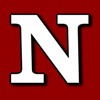 At the Nieman Journalism Lab, Joshua Benton has a discussion of an issue I’ve often wondered about but never gotten around to expressing: If we use italics for titles of books, and “quotation marks” for titles of short stories, what do we use for electronic publications that are longer than short stories but not as long as books?
At the Nieman Journalism Lab, Joshua Benton has a discussion of an issue I’ve often wondered about but never gotten around to expressing: If we use italics for titles of books, and “quotation marks” for titles of short stories, what do we use for electronic publications that are longer than short stories but not as long as books?
Benton runs down some arguments for and against each method, and examines what the various style guides have to say on the matter. He leans toward quotation marks, but doesn’t really say where the line should be drawn—or even if it necessarily needs to be. But perhaps the most important point is the one he makes in the end:
I bring this up not because the world will care one bit which we use, but because it’s a broader sign of the disruptive power of new digital forms. Our rules about titles are largely rules about packages and forms: What kind of a box does something fit into? Books get x, articles get y, films get z. But those containers aren’t as neat as they used to be, and they don’t always tell us the same things about their contents as they used to. So it’s only natural that the way we talk about them — and the way we think about them — will evolve alongside them.

































Surely they’ve always existed, long before ebooks? They’re called novelettes and novellas for fiction, articles and essays for non-fiction. I must admit I’d never realised their was such a rule for book vs short story titles (journalists can be so anal at times), but whatever the rules are for the titles of novelettes, novellas, articles and essays is what should probably continue for their e-versions.
I tend to use quotes for all titles. MLA rules are really only necessary for publications and italics are difficult to use online.
On the other hand, according to MLA, an article within another work should be in quotes, with the work (often a journal) in italics. The same goes for short stories. It would be more logical for a short, stand-alone work to be in italics. A short work as part of an anthology would be in quotes.
David S.: I agree. (In this case, the rule is that novelettes get quotes like short stories, novellas get italicized like novels.)
“Disruptive”? I’d hardly consider this issue part of the “disruptive” effects of the digital paradigm. In fact, this has always been a complete non-issue, relegated to entries in style books, and ignored by everyone who doesn’t live by those books.
Just pick one. No one cares which you pick, just so you’re consistent with it. And move on.
Rules to be used by Academics and Researchers in their Technical papers. Not relevant to the wider world 🙂